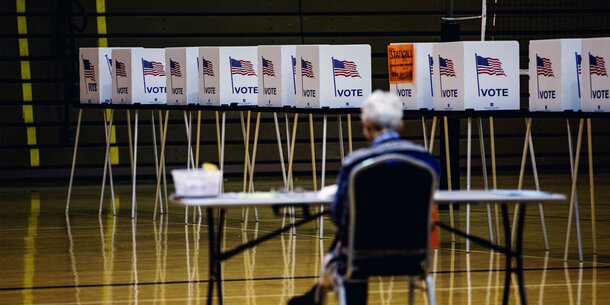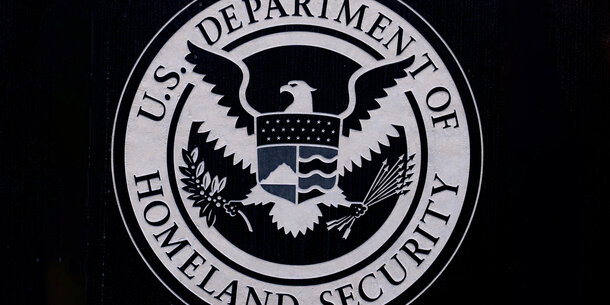The failure of the Federal Bureau of Investigation (FBI) and other law enforcement agencies to anticipate and prepare for the January 6, 2021, attack on the U.S. Capitol by far-right insurrectionists has elicited proposals to expand the bureau’s authority to investigate domestic terrorism. 1 The FBI already received expansive new powers after the 9/11 terrorist attacks, and its current guidelines place few limits on agents’ ability to search broadly for potential threats. Confusion about the current scope of the bureau’s powers is understandable, however, as FBI leaders have regularly misstated their authorities in public testimony. 2 These misstatements deflect FBI accountability by focusing overseers on filling perceived gaps in its authority rather than examining how the bureau uses, misuses, or fails to use the tools it already has.
The real problem is not that the FBI’s authorities are too narrow, but rather that they are overbroad and untethered to evidence of wrongdoing. After 9/11, the Department of Justice (DOJ) reduced or eliminated reasonable evidentiary predicates to justify broader collection and sharing of Americans’ personal information. This new domestic intelligence process replaced evidence-driven investigations of suspected criminal activities with mass data collection and untriaged reporting of speculative harms unsupported by facts. The sheer volume of threat reporting resulting from this system suffocates effective intelligence analysis, flooding law enforcement leaders with thousands of specious threat warnings a day. In addition to unjustified invasions of privacy, the high rate of false alarms that this process produces naturally dulls the response, and the disconnect from evidence of criminality opens the door to bias-driven law enforcement responses. As they have in the past, the FBI’s unbridled authorities have resulted in abuses of civil rights and civil liberties without improving its ability to identify and mitigate real threats.
Misinformation from FBI officials has confused the policy debate. When senators investigating the January 6 attack asked Jill Sanborn, then the assistant director of the FBI’s Counterterrorism Division, whether FBI agents monitored the multitude of threats made in public forums prior to the attack, Sanborn replied, “It’s not within our authorities.” 3 Sanborn claimed that the FBI cannot collect information involving First Amendment–protected activities without a predicated investigation or a tip from a community member or law enforcement officer. These statements are inaccurate, yet they featured prominently in the Senate’s report on the security, planning, and response failures regarding the attack on the Capitol.4
When FBI Director Christopher Wray later testified before Congress, he also claimed that FBI rules restricted agents’ authority to investigate threats to the Capitol posted online absent a criminal predicate and authorized purpose. Wray proposed addressing this purported deficit by expanding the FBI’s authorities: “If the policy should be changed,” he told the Senate Judiciary Committee, “. . . that might be one of the important lessons learned coming out of this whole experience.”5
The FBI’s authorities are, however, a matter of public record. Contrary to Sanborn’s and Wray’s claims, agents are authorized to conduct intrusive investigations even when there is no authorized purpose, allegation, or information suggesting that criminal activity may occur.
Under current rules, bureau agents and analysts are authorized to monitor publicly available information even before opening investigations — and they in fact did so before the January 6 attack. A U.S. Government Accountability Office investigation confirmed that the FBI had received threat information posted on social media regarding potential violence at the Capitol from multiple sources prior to January 6. The FBI obtained this threat information through manual online searches, from other federal, state, and local law enforcement agencies, directly from the companies running social media platforms, and through open source analysis tools that search across platforms.6
Misinformation about the scope of the bureau’s authority to investigate domestic terrorism obfuscates ongoing inquiries into the FBI’s failure to prepare for the January 6 attack, particularly as the Justice Department contemplates seeking new statutory powers and additional resources to fill these imagined gaps. 7 Reforming the FBI requires restoring reasonable criminal predicates to compel the bureau to focus its investigative activities where evidence of criminal activity exists. This report details the expansive breadth of the FBI’s current investigatory authorities, examines how these overbroad authorities hinder the bureau’s ability to focus on true threats, and proposes reforms that Congress and the attorney general can undertake now to enhance the bureau’s effectiveness while protecting Americans from bias-based investigations and invasions of privacy.
Endnotes
-
1
Rachael Levy, “A Domestic Terrorism Law Is Debated Anew After Capitol Riot,” Wall Street Journal, February 13, 2021, https://www.wsj.com/articles/a-domestic-terrorism-law-is-debated-anew-after-capitol-riot-11613224800; Paul Jenks, “Lawmakers Divided over Need for New Domestic Terrorism Law,” Roll Call, April 19, 2021, https://rollcall.com/2021/04/19/lawmakers-divided-over-need-for-new-domestic-terrorism-law/; and Lucy Tu, “Defining Domestic Terrorism: Does the U.S. Need New Criminal Penalties for Domestic Terrorism Events?,” Harvard Political Review, June 4, 2021, https://harvardpolitics.com/united-states-domestic-terrorism. -
2
Emily Berman, FBI: Fact or Fiction, Brennan Center for Justice, July 27, 2011, https://www.brennancenter.org/our-work/research-reports/fbi-fact-or-fiction; Michael German and Emily Hockett, “Standards for Opening an FBI Investigation So Low They Make the Statistic Meaningless,” Brennan Center for Justice, May 2, 2017, https://www.brennancenter.org/our-work/analysis-opinion/standards-opening-fbi-investigation-so-low-they-make-statistic; and Tim Cushing, “FBI Cites Guidelines That Don’t Actually Forbid Social Media Monitoring as the Reason It Was Blindsided by the January 6 Attack,” Tech Dirt, July 7, 2021, https://www.techdirt.com/articles/20210703/17104647111/fbi-cites-guidelines-that-dont-actually-forbid-social-media-monitoring-as-reason-it-wasblindsided-january-6-attack.shtml. -
3
Hearing on U.S. Capitol Attack, Day 2, Part 1, Hearing Before the Senate Rules Committee and Homeland Security Committee, 117th Cong. (2021) (Senator Kyrsten Sinema: “Was the FBI aware of these specific conversations on social media?” Jill Sanborn: “To my knowledge, no ma’am. . . . Under our authorities, being mindful of the First Amendment and our dual-headed mission to uphold the Constitution, we cannot collect First Amendment–protected activities without the next step which is the intent. So we’d have to have a predicated investigation that allowed us access to those comms and/or a lead or a tip or a report from a community citizen or a fellow law enforcement partner for us to gather that information.” Sinema: “So the FBI does not monitor publicly available social media conversations?” Sanborn: “Correct ma’am, it’s not within our authorities.”). -
4
U.S. Senate Committee on Homeland Security and Government Affairs and Committee on Rules and Administration, Examining the U.S. Capitol Attack: A Review of the Security, Planning, and Response Failures on January 6, June 8, 2021, 35–36, https://www.rules.senate.gov/imo/media/doc/Jan%206%20HSGAC%20Rules%20Report.pdf. -
5
The Capitol Insurrection: Unexplained Delays and Unanswered Questions (Part II), Hearing Before the Committee on Oversight and Reform, U.S. House of Reps., 58, June 15, 2021, https://www.congress.gov/117/meeting/house/112771/documents/HHRG-117-GO00-Transcript-20210615.pdf. -
6
U.S. Government Accountability Office, Capitol Attack: Federal Agencies’ Use of Open Source Data and Related Threat Products Prior to January 6, 2021, May 2022, https://www.justsecurity.org/wp-content/uploads/2022/05/january-6-clearinghouse-GAO-report-on-federal-agencies-use-of-open-source-data-May-2022.pdf. See also Andy Kroll, “FBI Documents Expose Bureau’s Big Jan. 6 ‘Lie,’” Rolling Stone, April 14, 2022, https://www.rollingstone.com/politics/politics-features/jan6-fbi-social-media-privacy-black-lives-matter-1337565/; Betsy Woodruff Swan, “‘Keep Your Head on a Swivel’: FBI Analyst Circulated a Prescient Warning of Jan. 6 Violence,” Politico, September 7, 2021, https://www.politico.com/news/2021/09/07/fbi-warning-jan-6–510020; Beth Reinhard and Matt Zapotosky, “FBI Alert About Possible ‘War’ Against Congress Reached D.C. and Capitol Police on Eve of Attack, Deepening Security Questions,” Washington Post, February 23, 2021, https://www.washingtonpost.com/politics/capitol-riot-intelligence/2021/02/23/1cdfd126–75f4–11eb-ae66–8b9e3c6918a1_story.html -
7
Levy, “Domestic Terrorism Law Is Debated Anew”; Jenks, “Lawmakers Divided over Need for New Domestic Terrorism Law”; Tu, “Defining Domestic Terrorism”; and Ryan J. Reilly, “U.S. Capitol Attack Is Reshaping the Federal Counterterrorism Budget,” Huffington Post, June 5, 2021, https://www.huffpost.com/entry/justice-department-fbi-budget-capitol-attack_n_60b7e6c5e4b0169ca9709229.




